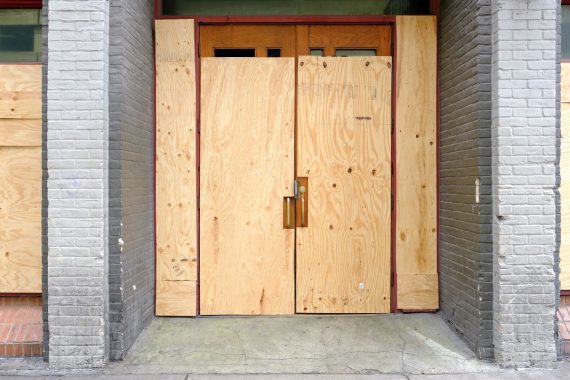GP practice closures are associated with reduced funding per number of patients, a new study has found.
Researchers at the University of Manchester have found that practice closures are linked with reduced patient satisfaction with services at the surviving practices, which end up having more patients, as well as proportionally less GPs and funding.
Last year, a major Pulse investigation revealed the reasons why some practices are forced to close and will never be replaced, exposing the reasons behind closures which are now ‘disturbingly common,’ with more than 800 since 2013.
The investigation, named Lost Practices, also considered whether funding was a factor, as of the 232 practices in England where funding data was available, two-thirds (69%) were receiving below the average funding per patient in the year before they closed.
The new study, published in the British Journal of General Practice today, aimed at exploring changes in practice funding, list size, workforce composition, and quality change in surviving practices when surrounding surgeries are forced to close.
The authors observed that closures of UK practices accelerated from less than one a week in 2013 to around six a week in 2018, before declining to around four a week in 2020.
This was alongside a gradual increase in average list size from 6,914 to 9,007 between 2013 and 2020, with 1,398 fewer practices overall.
The researchers observed a £2.37 (1.48%) reduction in funding per patient with increasing exposure to closure, suggesting that inequality may be exacerbated by closures.
Dr Joseph Hutchinson, academic clinical fellow in general practice at the University of Manchester and one of the authors of the study, told Pulse that same exposure to closure also resulted in 86.9 more patients per full-time GP.
He said: ‘We sampled all English general practices open in March 2020, assimilating organisational, demographic, funding, workforce, QOF and GP patient survey data.
‘We estimated the amount of exposure the sampled practices had to the closure of other practices between 2016 to 2019.
‘We then analysed the impact that exposure to closure had on our outcomes for the surviving practices.’
The study identified that closures may make providing care in the surviving practices ‘more challenging, increasing the risk of supply—demand imbalance and associated access issues.’
The authors also said that, as QOF remains stable, findings may indicate efficiency improvements, but that a decline in satisfaction contradict this indication.
Dr Hutchinson also pointed out that exposure to closure was greater in communities where there was more deprivation or people from non-white ethnicities, as well as in younger and urban populations.
He added: ‘As we find closures are associated with reduced funding per patient, more patients per GP and a decline in patient satisfaction, closures may exacerbate existing health inequality concerns; although the change with deprivation was small.’
Pulse’s Lost Practices investigation had also linked practice closures with deprived areas, and had found that deprived practices face greater pressures that force them to close more than practices in affluent areas.
On average, Pulse found that practices that close for good are in postcodes that have a ranking of around 3.81 on the Index of Multiple Deprivation, compared with a national average for practices of 4.41 (with 1 being most deprived, 10 being least deprived).
It comes as 10,000 patients in Bournemouth will have to change their GP practice, after a health centre announced its intention to close earlier this week.
And a patients’ group in Shropshire is looking at buying its local GP surgery building, to save it from closure and make it more attractive to new doctors.
Note: this story was edited on 22 May to reflect that the study was published in the British Journal of General Practice. An earlier version of the story had reported that the study appeared in the British Medical Journal.


















READERS' COMMENTS [2]
Please note, only GPs are permitted to add comments to articles
The RCGP has been ineffective in its role and attracts the wrong sorts of individuals .It has done little in opinion which is worthwhile to protect General Practice and it is effective only at collecting fees and providing a rung on the ladder towards the News Years Honours list. It is as much a friend to your average GP as the CQC!
This study at the cost of ? Is no surprise to anyone but researchers have to produce research I suppose. It’s like when you HAVE to do an audit you pick an easy one and knock it out the park.
A Basic knowledge of the GMS contract, the barn door obvious fact that surrounding practices will see an increase in list size per GP and the rest of it is equally obvious and academic. Lol.
No solutions?
Do away with the GMS contract and move to a fee for service model. As long as the pricing is correct there will be an obvious pushback to shifting work from secondary care.